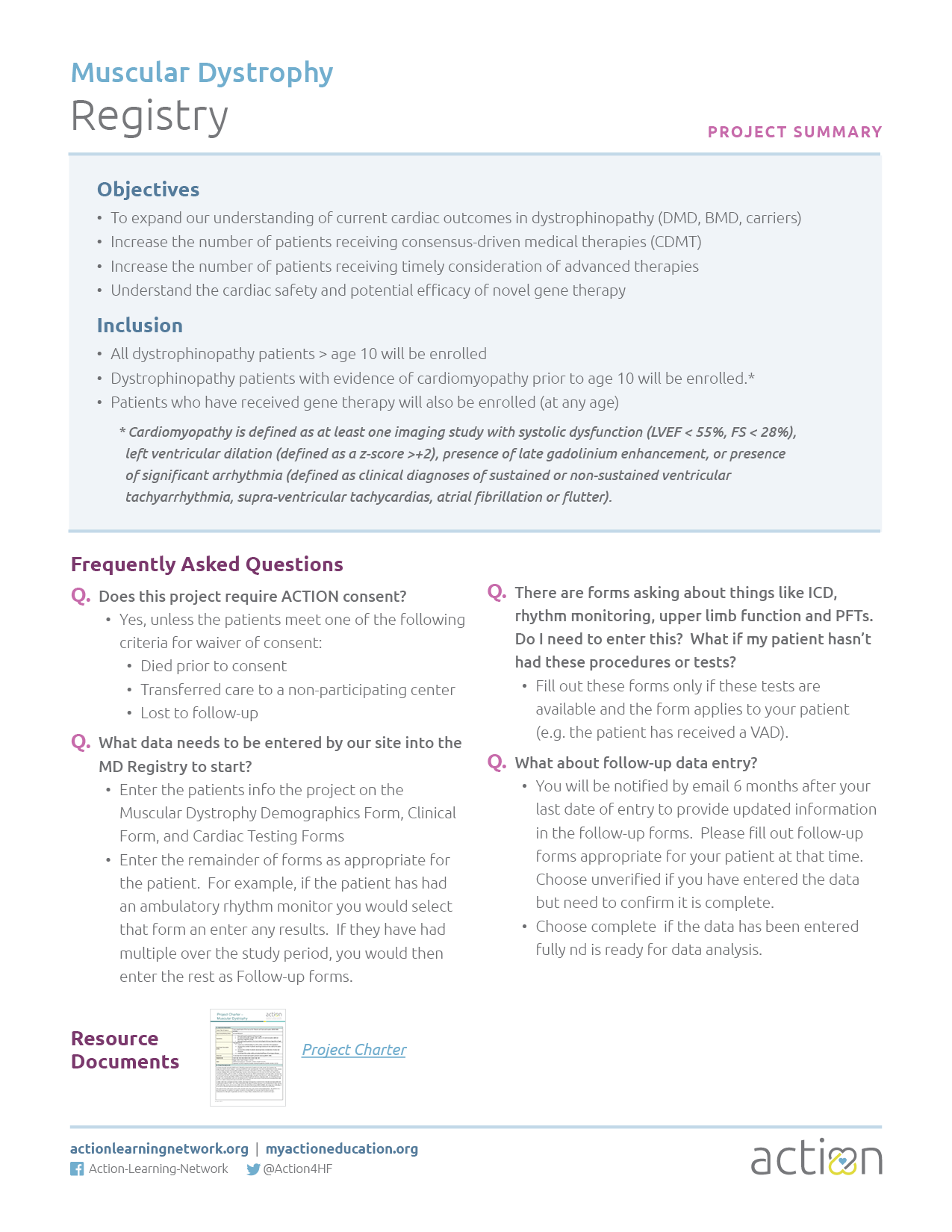What is the project focus?
Muscular Dystrophy (MD) leads to fibrofatty replacement of skeletal and cardiac muscle. This translates into progressive skeletal muscle weakness, respiratory insufficiency and cardiomyopathy. The earliest manifestations of cardiac disease are increasingly well understood through a multifaceted approach of biomarker evaluation, strain imaging, cardiac magnetic resonance imaging (cMRI), and rhythm monitoring. However, medical therapy prior to the onset of severe heart failure remains inconsistently applied, while the number of pharmacologic therapies for dilated cardiomyopathy is growing rapidly. The long term survival of men with Duchenne Muscular Dystrophy (DMD) is also increasing, leading to a growing number of people living with severe ventricular dysfunction. This has presented clinicians and families with the necessity of making significant decisions regarding cardiac care (including advanced therapies such as implantable cardioverter-defibrillators (ICDs), ventricular assist devices (VADs) and heart transplantation while practice is rapidly evolving and therapeutic benefit is not yet defined. This project seeks to understand current heart failure outcomes in DMD. We will then use a data driven approach to optimize the number of patients receiving GDMT (or consensus driven therapy for specific medical/advanced therapies if applicable) and those receiving a timely evaluation/discussion of advanced therapies.
Who is impacted?
MD patients with left ventricular ejection fraction (LVEF) < 45%, fractional shortening (FS) < 19%, or worse than mild systolic dysfunction qualitatively are included in the ACTION Muscular Dystrophy Registry.What are we doing to help?
The ACTION Muscular Dystrophy committee is working together to harmonize practices and develop education for patients, families, and providers.- See some examples of our patient and family resources.
- Access all educational resources on MyACTIONEducation.org.
- Providers: To access our provider materials (educational resources, harmonization guidelines, etc.) please login to MyACTIONEducation.org and visit Providers>ACTION Library > Resources. If you don’t have Provider access, please email us.
What data do we have?
We are collecting patient data to understand the current heart failure outcomes for MD patients. See below.


